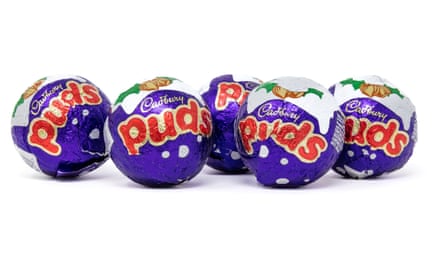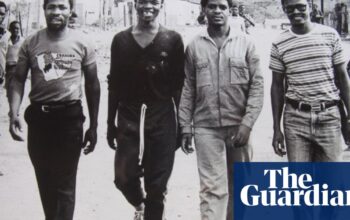The cocoa supply chains of major chocolate brands have come under scrutiny for their “insufficient” ethical standards, according to a report by Ethical Consumer. Out of the 82 brands studied, only 17 were found to source their chocolate from suppliers who paid cocoa farmers a fair wage.
There is a concern that Advent calendars, chocolate Santas, and other holiday goodies may have been made using child labor. A majority of the world’s cocoa supply originates from western Africa, where it is estimated that six out of ten households that grow cocoa in Ghana employ child labor, and four out of ten do so in Ivory Coast.
Ethical Consumer suggested Tony’s Chocolonely, Divine, and Chocolat Madagascar as top brands that adhere to Fairtrade International or Rainforest Alliance standards, pay higher rates, and source chocolate from the country of origin instead of imported beans. This supports the economies of cocoa-producing countries rather than European manufacturers.
Mars, Nestlé, and Mondelēz, the parent company of Cadbury, were deemed poor and labeled as “brands to avoid.” Ferrero also received a poor rating.
The researchers found that while each company has a sustainability plan in place, it only applies to a portion of their cocoa suppliers. This leaves some farmers without any benefits.
In a recent investigation, Channel 4’s Dispatches discovered that 10-year-old kids were utilizing machetes to gather cocoa beans that would be supplied to Mondelēz.

The tax practices, utilization of palm oil, deforestation, and plastic and packaging were all evaluated for the 82 brands.
According to Jasmine Owens, a researcher at Ethical Consumer, there is a major disparity within the chocolate industry. While large chocolate companies are making billions of pounds, many cocoa farmers struggle to make a living and live in poverty.
The majority of the world’s chocolate is produced in western Africa, where the working conditions for farmers are typically deplorable. However, it is primarily European and UK consumers who consume the most chocolate. Therefore, we hold a significant amount of control and accountability for the wellbeing of farmers in western Africa, as our demand for cocoa is what drives their harvesting efforts.
According to Owens, purchasing chocolate from companies like Fairafric, ’57 Chocolate, and Chocolat Madagascar may be costly and difficult to obtain, but they make great indulgences or gifts. On the other hand, Tony’s Chocolonely can be found in most grocery stores and is dedicated to transforming the chocolate industry.
Joke Aerts, of Tony’s Open Chain, said it was trying “to put human rights at the core of purchasing practices” by using traceable cocoa beans, paying the living income reference price (the amount a typical farmer needs to make to be able to live), helping farming co-ops to become more professional, working with them for at least five-year periods, and helping farmers improve crop yields so they had less incentive to clear land to plant more cacao trees.

In 2020, the University of Chicago’s National Opinion Research Centre released a report stating that 43% of kids residing in cocoa-producing regions of Ghana and Ivory Coast were involved in dangerous child labor, totaling approximately 1.56 million children.
According to Katie Bird, who works for the nonprofit organization International Cocoa Initiative, many children are removed from school by their parents in order to work on farms. This is a form of child labor and forced labor that the organization is working to eradicate. Poverty among farmers is a major factor leading to this issue, and all stakeholders, including the cocoa industry, governments, civil society groups, producers, and countries that consume cocoa, have a responsibility to address it. This includes providing access to education and healthcare, as well as supporting farmers in diversifying their crops.
Both Ghana and Ivory Coast have laws against child labour, and police patrol some plantations. Yet the size of the cocoa-growing areas makes them hard to police, according to Mike Rogerson, a lecturer in operations management at Sussex University and an expert on modern slavery in supply chains.
According to Rogerson, the price of cocoa is determined on a global scale every year, but it consistently disappoints those who are involved in the negotiations, except for the four largest corporations that use cocoa. When companies do not pay a fair price for cocoa, it ultimately means that parents are unable to support themselves and their families.
According to him, it is challenging for businesses to monitor the origin of their cocoa as farmers may sell their beans to one another. This is due to the fact that cocoa is usually traded in 50kg bags and the beans are often combined at various processing centers. He mentioned that utilizing DNA to trace cocoa beans would require an annual investment of approximately £4m for the industry. However, despite the potential benefits, there has been minimal enthusiasm for this technology among chocolate companies.
Mondelēz did not provide a direct response, but instead referenced its sustainability report. The report states that the company’s goal is to obtain all of its chocolate through the Cocoa Life initiative by 2025 and aims to have 300,000 farmers enrolled in the program by 2030.
A representative from Nestlé stated that they do not agree with Ethical Consumer’s evaluation of their approach, as it does not accurately reflect the extensive information they have shared about their efforts to ethically source cocoa for their products.
Nestlé has been at the forefront of developing innovative projects and efforts aimed at enhancing the responsible acquisition of cocoa for our merchandise and assisting in the betterment of farmers’ lives.
Nestlé is implementing an “income acceleration program” for 10,000 farming households in Ivory Coast, offering them the opportunity to earn an additional €500 annually for two years. Their goal is to expand this program to reach 160,000 families by 2030.
A representative from Ferrero stated that their cocoa is obtained entirely from independently monitored sources, including Rainforest Alliance, Fairtrade Foundation, and Cocoa Horizons.
Ferrero collaborates with groups of farmers to enhance their livelihoods through boosting cocoa output and promoting diversity. They also provide support for the welfare of women and children, as well as for the environment.
“We have made a commitment to providing the Living Income Differential, a cause we fully endorse. Additionally, we offer a cash premium to all farmers in addition to the market price.”
Ferrero is dedicated to their cocoa sustainability program in order to make a lasting, positive impact on the cocoa industry.
There was no response from Mars when asked for a comment.
Source: theguardian.com


